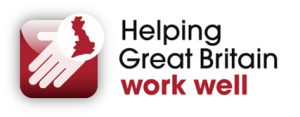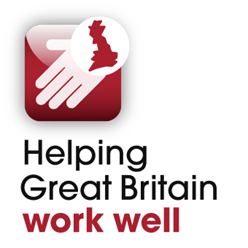Helping Great Britain work well:
This is the new HSE strategy for Great Britain’s occupational health and safety system and we at The Wilkins Safety Group are pleased to support it. So this week I thought that I would copy the main points of the HSE’s Strategy Document.
I hope that you read this and then you too adopt the ideas in this strategy and, at least in your own business environment, keep building a 21st-century, world-class occupational health and safety system that will help Great Britain work well.
This week’s 2 recent HSE cases look at accidents that should never have happened.
- A patient at Royal Berkshire NHS Foundation Trust, 90-year-old Major Fyfe, suffered a broken neck and a cut to their head as a result of a fall from a QA3 trolley and he died 26 days later.
- The first engineer had lost his sense of smell and taste and required physiotherapy for a number of years. The second engineer received serious multiple fractures of the skull and spine, his sense of smell and taste had been affected, he was blinded in one eye, and has long term memory problems.
As ever, if you have a subject that you would like us to cover one week, please contact us by phone 01458 253682, email or via our Facebook page or by Twitter.
Helping Great Britain work well: A new health and safety system strategy
Key points
- Great Britain has a health and safety record to be proud of
- Six new priority themes will help Great Britain to work well
- Everyone in the health and safety system should play their part.
Executive summary
Great Britain’s health and safety record is the envy of much of the world. Central to this is protecting people by managing risk in a proportionate and effective way, supporting innovation and increasing productivity. The challenge is to improve even further on this impressive record. HSE is seeking to influence the system through the Helping Great Britain work well strategy.
While HSE’s position as a regulator ensures it will remain the key player, there is a role to play for everyone who has a stake or interest in improving health and safety in the workplace. This is what is called ‘the system’, not an abstract concept, but networks of organisations and individuals, including, among others, employers, employees, industry and trade bodies, supply chains, third-sector bodies, insurance and legal bodies, workers’ representatives, professional institutions and government, as well as co-regulators and many others. Put another way, this means all those who undertake, or influence, workplace activities and attitudes.
The Helping Great Britain work well strategy sets out the priority themes for us to focus on over the next five years. It is important to acknowledge at the start that this will not be at the expense of what is already done well, but the areas identified here are those on which all will need to focus their efforts collectively to make the greatest improvement.
HSE will continue to be a prime mover, whether through ongoing regulatory reform, working in partnership with stakeholders, carrying out inspections, assessing safety cases and reports, or where necessary taking enforcement action.
Nationwide engagement
Strategic themes were discussed with key players – representing all sectors and organisations with an interest in health and safety – during a nationwide engagement programme in January and February 2016.
The feedback suggested unanimous support for the overarching objective to help Great Britain work well.
Key messages in support of Helping Great Britain work well
- We can be proud of Great Britain’s record on occupational health and safety – it’s one of the best in the world.
- Getting risk management right is an enabler for innovation and growth, and is integral to business success, as well as the well-being of workers.
- Everyone in the system needs to play their part and make Great Britain work well. We all have a responsibility.
Six strategic themes
- Acting together: Promoting broader ownership of health and safety in Great Britain.
- Tackling ill health: Highlighting and tackling the costs of work-related ill health.
- Managing risk well: Simplifying risk management and helping business to grow.
- Supporting small employers: Giving SMEs simple advice so they know what they have to do.
- Keeping pace with change: Anticipating and tackling new health and safety challenges.
- Sharing our success: Promoting the benefits of Great Britain’s world-class health and safety system.
The six themes are the basis for agreeing a collective way forward that will help Great Britain work well.
The themes have received widespread support across different sectors during the engagement process and provide a strong platform on which detailed delivery plans can be developed, in partnership with stakeholders.
The new strategy is built on a basic premise – by acting together in a supportive and encouraging environment, complemented by effective and proportionate regulation and risk management, the system can be greater than the sum of its parts. For HSE, the strategy also provides a clear direction on where resources should be targeted to greatest effect.
The result will be greater and wider ownership of the issues, with businesses able to enjoy the improved productivity that a strong health and safety culture will generate, while workers will be healthier and safer.
Acting together
Health and safety should not be a responsibility assigned to a particular individual or part of an organisation, but an integral part of everyone’s role. There needs to be much broader ownership of the issues. This means engaging everyone who shares the responsibility for helping Great Britain work well, because they have a vital role in managing risk and preventing damage to individuals, businesses and the economy.
Across each nation, region or sector, we need collective ownership that best reflects local circumstances. The regulators will retain their key roles, providing targeted advice and guidance for key audience groups and taking enforcement action when and where necessary. Encouraging others to take ownership of health and safety will be critical in making this theme successful. This means everyone collaborating to reach those who may have been less engaged.
 Tackling ill health
Tackling ill health
Work-related ill health is a problem for every section of society, with conditions ranging from cancer and other long-latency diseases, to stress and musculoskeletal disorders. Greater awareness of the harm, costs and preventability of work-related ill health should drive collective action to improve health outcomes.
This will require long-term and coordinated action across all sectors, bringing in additional partners such as the NHS and others to support the substantial behaviour change and awareness programmes that will be required.
A key element of this theme will be in earlier prevention, which is more cost-effective than trying to intervene when a person is suffering from more serious ill health. This will involve a greater focus on health issues at work, while continuing to ensure that maintaining standards around safety remains a priority.
 Managing risk well
Managing risk well
Successful organisations understand that sensible and proportionate risk management is integral to delivering their business. This approach supports growth, enables innovation and protects an organisation’s most vital asset, its people. Positive outcomes can include reduced sickness absence, lower costs and a good reputation. Promoting this compelling business case should help even more businesses to make the most of the many benefits a good health and safety culture can bring.
Sharing examples of practice, supported by targeted, relevant advice and information will allow the system to set a common understanding of what proportionate health and safety looks like. Health and safety professionals have an important role to play. Helping businesses of all sizes get it right in an efficient and effective way will build trust and improve standards.
 Supporting small employers
Supporting small employers
Reaching micro and small businesses can be difficult, but not impossible. Working together, much has already been done to help small businesses, but there are opportunities to work smarter. Already many large businesses and intermediaries have developed efficient supply chains and productive relationships by working with and supporting small businesses.
Many organisations also provide free help and support to SMEs outside their supply chains through cross-sector initiatives.
For SMEs, managing workplace risks shouldn’t be complicated or costly. Making support available which is quick and easy for small businesses to understand, so that they can fulfil their obligations, remains a challenge for all sectors.
It will also be important to identify who the key influencers are for SMEs, working with them to raise awareness levels about the peer and expert support that is out there.
 Keeping pace with change
Keeping pace with change
Great Britain leads the world in anticipating and tackling the new health and safety challenges that come with social, economic and technological change.
This ability to horizon scan, when combined with the deep knowledge and unrivalled expertise of the system, means that anticipating new health and safety challenges is an area where Great Britain can play a leading role, for example through HSE’s world-leading research capabilities. They are already being put to use helping Great Britain, as well as countries around the world, to improve health and safety, as well as better business outcomes.
To remain a world leader in risk management, Great Britain needs to develop high-quality capability, anticipating the workplace challenges of tomorrow and using the flexibility of our goalsetting approach to solve them in ways that enable innovation and the use of new technologies.
Tackling the problems of tomorrow today is a responsible investment that protects workers, enables new and different approaches and provides the new knowledge, skills and expertise Great Britain can share internationally.
 Sharing our success
Sharing our success
Everyone can take pride in Great Britain’s world-class reputation for health and safety and promote its success at home and abroad. Creating a world-class system is a goal we can all unite around and benefit from as a source of inspiration and achievement, and can also be pleased to support.
This strategy has largely concerned itself with improving standards in Great Britain. But we should also look to share best practice and the latest thinking and innovation around the world. This can help influence health and safety systems overseas and make it easier for British businesses to expand into new markets and territories. The work can also bring commercial opportunities for selling British health and safety ‘products’ or consultancy.
Making it happen
Great Britain’s health and safety record is the envy of much of the world. Building on a sound regulatory framework which has stood the test of time, the last five years have been guided by the Be part of the solution strategy. But as a number of factors have changed, including new technologies, social change and a renewed focus on occupational health, it is timely to look again at where the focus for the next five years needs to be.
The fundamentals remain:
- strong and visible leadership;
- collaboration and partnership, including genuine worker engagement;
- directors, managers, supervisors and workers having the competence to identify and controlthe risks created by their work activities;
- having public confidence in the safe running of high-hazard industries.
The focus of the strategy is to provide direction to the wider health and safety system for Great Britain and all those who are involved in, or interact, with it so that a much greater collective contribution to improving outcomes can be made. HSE is committed to playing its part to improve outcomes and deliver on its responsibilities as the independent regulator and prime mover in the system.
HSE will be there to support those efforts by capturing and promoting successful approaches and developing measures to track progress towards the delivery of the themes. The leadership from HSE will give others in the system the confidence to take more ownership.
If you need further information please call us on 01458 253682 or send us an email.
Training Courses
We are running new courses again in 2016 and the dates and details of the latest courses are listed below they are:
- Liability for Accidents and Ill Health at Work
- CDM Regulations 2015 – An Awareness Course
- SMSTS (Site Management Safety Training Scheme)
But remember we are still available for running “In House” courses and we have now also added a new training service for our customers.
Site Manager Safety Training Scheme
(Part of Construction Skills “Site Safety Plus” Suite of Courses)
We have formed an association with a local company TQ Excel who are one of the UK’s leading providers of accredited training to the highways sector of the construction industry.
AS a result of this we can now offer the SMSTS (Site Management Safety Training Scheme)
The Site Management Safety Training Scheme forms part of the Construction Skills (CITB) Site Safety Plus range of courses which are highly regarded within the construction industry.
The 5 day training course is aimed at site managers wishing to develop a more in depth legal, moral and social understanding of their role and also teaches delegates how to manage on-site health and safety in accordance with current legislation.
We also offer the 2 day SSSTS Training Course (Site Supervisor Safety Training Scheme) which is a 2 day course aimed at those with on-site supervisory responsibilities.
We also can now offer NRSWA courses.
These qualifications are for those involved in the Excavation and Re-instatement of the highway and are specified under the New Roads and Street Works Act 1991. They are a legal requirement for “statutory undertakers” (i.e. Utility Contractors) and for those working under “section 50 licenses” (Drainage works etc).
Where works are subject to the Act there must be a minimum of 1 qualified operative on every site that is qualified for the operations being carried out and there must be a Supervisor available to visit the site at least on a daily basis.
The qualifications are also often specified by client organisations and local authorities when appointing contractors for works involving excavation or reinstatement of the highway for other purposes.
Liability for Accidents and Ill Health at Work 
Seminar Objective Training /CPD Certificate issued
This one-day course looks at your liability, as Company Owner, Director, or Manager. The course will look at a number of case studies and explain the legal requirements of the Employer, Managers, and your Safety Adviser.
Seminar Outline
- Legal framework and legislation (Criminal and civil liabilities)
- Roles and responsibilities of Directors, senior management team and the H&S Advisers
- An HSE Investigation
- Criminal Law – Who’s Liable
- The New powers of the Courts
- Compensation – Who’s Liable
- Corporate Manslaughter – The key things to know
- When it is the employee’s fault
- How to reduce your liability as an employer
- How you could be personally liable
- Successful cases against Health & Safety Advisers
Benefits of Attending
- By attending this course you will understand your liability regarding Health & Safety at work. And what you need to do to protect yourself and your business.
- How the Authorities investigate incidents and how the courts fine you.
Course Duration: 1 day
| COURSE REF | DATE(s) | LOCATION |
|---|---|---|
| LIAB 1602 | Thursday 9th June 2016 | Taunton Racecourse, Orchard Portman, Taunton, Somerset TA3 7BL |
Fee: £150 to include Course notes, mid-morning & afternoon refreshments, Finger buffet lunch, CPD Certificate (Fee subject to VAT)
CDM Regulations 2015 – An Awareness Course
Course Objective Training /CPD and APS Certificates
The Construction (Design and Management) Regulations 2015 (CDM 2015) come into force on the 6th of April 2015, and will apply to all construction projects in the UK incl. Domestic projects
This CDM 2015 awareness training course has been developed to provide all duty holders with an understanding of their role and responsibilities under CDM 2015.
Seminar Outline
- Introduction to CDM 2015
- Notification
- Client Duties and Domestic Clients
- Principal Designer Duties
- Principal Contractor Duties
- Designer Duties
- Contractor Duties
- CDM Documentation
Benefits of Attending
- These courses give an overview of the requirements for Clients, Principal Designers, Principal Contractors, Contractors, Designers and Workers, and how the regulations apply to construction projects.
- An individual who successfully completes this CDM2015 Awareness Course may claim points towards membership of the Association for Project Safety – APS
Course Duration: 1 day
| COURSE REF | DATE(s) | LOCATION |
|---|---|---|
| CDM2015 1602 | Thursday 16th June 2016 | Taunton Racecourse, Orchard Portman, Taunton, Somerset TA3 7BL |
Fee: £170 to include Course notes, mid-morning & afternoon refreshments, Finger buffet lunch, a Certificate of Training and APS Certificate (Fee subject to VAT).
Site Manager Safety Training Scheme
(Part of Construction Skills “Site Safety Plus” Suite of Courses)
Target Audience
Site managers, agents and persons who are, or are about to be, responsible for planning, organising, monitoring, controlling or administering groups of staff and workforce.
Aims & Objectives
To help site managers, agents and supervisors to:
- Manage health & safety on site in accordance with current legal provisions, and within the context of their management or supervisory role
- Develop an understanding of responsibilities and accountability for site health, safety and welfare
- Recognise that a safe site is efficient, economical and productive
Delegates will, at the end of the training, be aware of and able to:
- Implement all health, safety, welfare and environmental legislation which affects them during their work
- Implement new guidance and industry best practice
- State their duties and responsibilities with regards to health, safety, welfare and the environment
Course Notes / Assessment / Certification
This 5 day Course will be held at The Oaktree, Bristol Road, Edithmead, Highbridge, Somerset TA9 4HA (6th – 10th June 2016)
The all-inclusive rate of £495.00 + vat per delegate will be payable at the time of booking.
If you have any questions about these courses or any other training or would like us to run a particular course for you, call Jon Wilkins of the Wilkins Safety Group on 01458 253682 or email him.

Your business is safer in our hands
